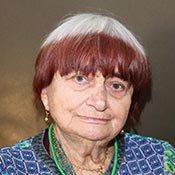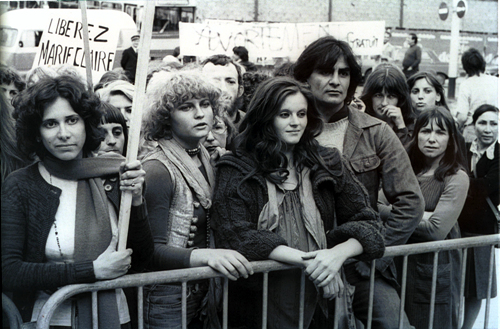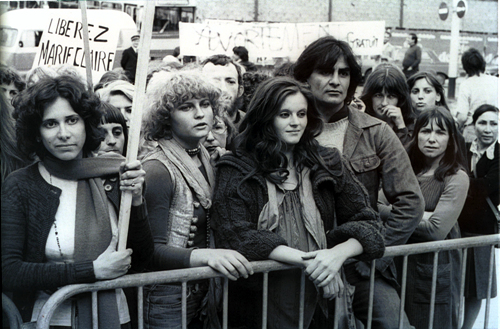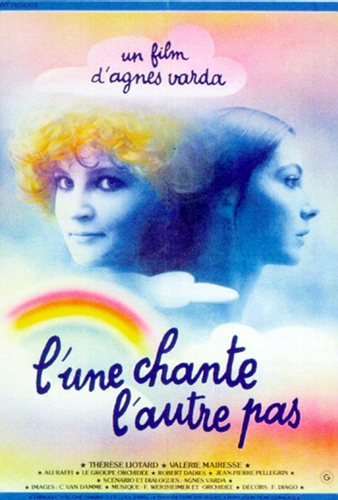3rd(2001)
One Sings, the Other Doesn’t
Agnès VARDA
- France
- 1976
- 120min
- 35mm
- color
Culture Activism Travel
SYNOPSIS
Out of all the Varda films, this one is considered to express the feminist content in purest form, utilizing traditional cinematic means. The 15-year-long friendship between Suzanne and Pauline is depicted as it gets under way with the advanced feminist movement in 1968. These two go through different experiences as women; pregnancy and abortion, conflicts with parents, encounters and farewells, maternity… These experiences reveal different ways subordination and oppression are put upon women and that femininity is just a form of stereotyping. Upon realizing this, the two women become aware of the necessity for women’s political power and mutual solidarity.
The postcards exchanged between the two women and Suzanne’s performance at the concert represent the issues of women expressing their own experiences using women’s language forms. If the contents of the postcards, present in narration, represent ‘inscribing’ the meaning of living as a woman, and the clashes within their internal desires, then the concert footage shown in a musical comedy form represent ‘singing’ of such issues as women’s political freedom and their physical autonomy. (Joo You-Shin)
The postcards exchanged between the two women and Suzanne’s performance at the concert represent the issues of women expressing their own experiences using women’s language forms. If the contents of the postcards, present in narration, represent ‘inscribing’ the meaning of living as a woman, and the clashes within their internal desires, then the concert footage shown in a musical comedy form represent ‘singing’ of such issues as women’s political freedom and their physical autonomy. (Joo You-Shin)
PROGRAM NOTE
Out of all the Varda films, this one is considered to express the feminist content in purest form, utilizing traditional cinematic means. The 15-year-long friendship between Suzanne and Pauline is depicted as it gets under way with the advanced feminist movement in 1968. These two go through different experiences as women; pregnancy and abortion, conflicts with parents, encounters and farewells, maternity… These experiences reveal different ways subordination and oppression are put upon women and that femininity is just a form of stereotyping. Upon realizing this, the two women become aware of the necessity for women’s political power and mutual solidarity.
The postcards exchanged between the two women and Suzanne’s performance at the concert represent the issues of women expressing their own experiences using women’s language forms. If the contents of the postcards, present in narration, represent ‘inscribing’ the meaning of living as a woman, and the clashes within their internal desires, then the concert footage shown in a musical comedy form represent ‘singing’ of such issues as women’s political freedom and their physical autonomy. (Joo You-Shin)
The postcards exchanged between the two women and Suzanne’s performance at the concert represent the issues of women expressing their own experiences using women’s language forms. If the contents of the postcards, present in narration, represent ‘inscribing’ the meaning of living as a woman, and the clashes within their internal desires, then the concert footage shown in a musical comedy form represent ‘singing’ of such issues as women’s political freedom and their physical autonomy. (Joo You-Shin)
Director
-

Agnès VARDAAgnès VARDA
Born in Ixelles, Brussels on May 30, 1928 and died on March 29, 2019.
VARDA was an extraordinary artist who pioneered modern cinema through installation arts, photography, live action films, and documentaries. As the mother of the Nouvelle Vague, she is also known as a pioneer of female films not only in France but throughout the world. As an expressive feminist, VARDA is famous for her critical essays on documentary-like reality and her interests on everyday life, photography, and arts.
Credit
- Cast Valerie Mairesse, Therese Liotard
- Screenwriter Agnès Varda
- Cinematography Charlie Vandamme
- Editor Joelle Van Effenterre
- Music Francois Wertheimer




